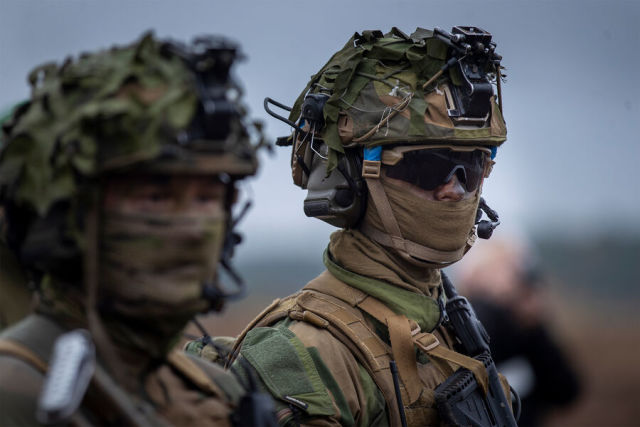The US Congressman believes in the victory of NATO in the war with Russia in three days Adam Kinzinger, a member of the US House of Representatives from the Republican Party, said that NATO can defeat Russia in three days.
So he answered a Twitter subscriber to the question why the North Atlantic Alliance has not yet taken over the Armed Forces of the Russian Federation.
"The destruction of Russia in three days"
Adam Kinzinger believes that "NATO can destroy Russia in three days," writes Newsweek. The authors of the article noted that Russian President Vladimir Putin has long been concerned that the North Atlantic Alliance is seeking to expand its spheres of influence. In particular, the Russian leader opposed Ukraine's accession to the military bloc, the article says.
"If Putin attacks a NATO member state, this country can refer to Article No. 5 of the NATO Charter, which states that "an attack on one ally is considered an attack on all allies," which, in fact, means that a military response can be initiated by all members," the journalists explained. editions.
On Kinzinger's Twitter page, one of the subscribers posted a question why, in 10 months since the beginning of Russia's military special operation in Ukraine, the countries of the North Atlantic Alliance supporting Kiev have not yet defeated the Armed Forces of the Russian Federation.
"I hope this is a joke. A NATO war against Russia would be like a real three-day operation, " the US congressman wrote.
The authors of the article recalled that Kinzinger was "an active supporter of Ukraine throughout the conflict."
At the same time, many NATO member states provided military and humanitarian assistance to Kiev, but "did not take direct part" out of fear that "sending their troops to Ukraine would most likely lead to an escalation of the war," the article says.
The journalists noted that, since Ukraine is not a member of NATO, "Russia's invasion will not cause a military response from NATO." However, in November, after the fall of two missiles on the territory of Poland, "fears increased" that the North Atlantic Alliance would intervene. But in the end, the countries of the military bloc decided that these were missiles fired by the Ukrainian air defense.
The confrontation between Russia and NATO
The authors of the article recalled that NATO Secretary General Jens Stoltenberg gave an interview to NRK in the first half of December, in which he admitted that a war could break out between Russia and the North Atlantic Alliance because of the situation in Ukraine.
"I'm afraid that the war in Ukraine will get out of control and escalate into a major war between NATO and Russia," Stoltenberg said at the time, adding that "if something goes wrong," it will be "terribly wrong."
At the same time, the Secretary General of the North Atlantic Alliance clarified that he was "confident" that this would be "avoided".
The fact that NATO has de facto become a participant in the conflict in Ukraine, the press secretary of the President of the Russian Federation Dmitry Peskov said on October 16 in the program "Moscow. Kremlin. Putin" on the TV channel "Russia 1".
In his opinion, the North Atlantic Alliance actually "got into" the conflict, but this does not affect Moscow's tasks in Ukraine in any way. The Kremlin representative believes that the military special operation will be brought to an end, but it will be "significantly harder" for Russia due to the intervention of the alliance.
"This probably requires our internal economic and other mobilization. One thing is the Kiev regime, and another thing is the potential of NATO. This is an additional burden. But our potential allows us to continue the operation in these conditions," Peskov explained.
On November 24, the official representative of the Russian Foreign Ministry, Maria Zakharova, announced at a briefing that "there are more and more facts that indicate that there is a confrontation between Russia and NATO in Ukraine." According to her data, "an increasing number of military specialists from the alliance countries are fighting as part of a dozen private military companies and the Armed Forces."
On December 1, President of Belarus Alexander Lukashenko said that the country's law enforcement agencies noted an increase in the number of provocations near the border with Ukraine. In his opinion, so "Ukraine, under any pretext, is most likely trying to draw the troops of NATO member states into the conflict."
Maria Shustrova

